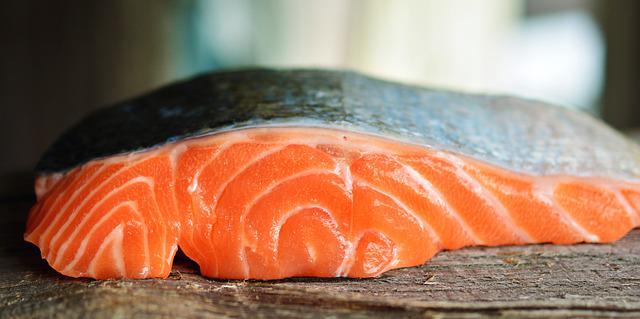Can You Freeze Fresh Salmon? How Long Does It Last In The Fridge?
 Salmon is touted as one of the most popular “fatty fishes” in the world and is a staple fish for many grand parties and business meals (particularly smoked). So, can you freeze fresh salmon? Can fresh salmon freeze well? How long does fresh salmon last in the fridge?
Salmon is touted as one of the most popular “fatty fishes” in the world and is a staple fish for many grand parties and business meals (particularly smoked). So, can you freeze fresh salmon? Can fresh salmon freeze well? How long does fresh salmon last in the fridge?
Contents
- 1 Can you freeze fresh salmon? Can fresh salmon freeze well?
- 2 How to freeze fresh salmon?
- 3 Will freezing affect its taste?
- 4 Can you refreeze raw salmon?
- 5 How long does raw salmon last in the fridge?
- 6 How long does raw salmon last in the freezer?
- 7 How to defrost salmon?
- 8 How to cook frozen raw salmon?
Can you freeze fresh salmon? Can fresh salmon freeze well?
If you don’t plan on cooking it within the next two days since you bought it or fished it, then it’s pretty safe to say that not storing it in the freezer is not an option, especially in hotter months. Fish is a particularly delicate type of meat that is prone to bacteria growth and oxidization due to the particular conditions of their natural habitat and their biological composition. so it can easily spoil if you’re not careful. Salmon is not an exception to this rule. It’s also a kind of meat that freezes quite well, owing to it being a cold-water fish, so it won’t experience particular deterioration.
How to freeze fresh salmon?
To freeze it well, first I rinse it and pat it to remove extra moisture, and then I put it in an airtight plastic or freezer bag, writing the current date on it to keep track. It should be kept between 0 and -4ºF to avoid damage. You can also skip the whole process and simply place it in the bag, but I like to dry it a bit as it helps with preservation. If you plan on using it for sushi, you must clean it and cut it into smaller pieces or fillets.
It’s important to know that the USDA has advised against washing meat and poultry for reasons that could apply to fish as well, relating to cross-contamination. If you bought it from a reputed store, there’s a good chance that it was well-processed before packing, but if you feel a bit skeptical about the way safety measures are being enforced and want to be extra sure, or if you actually fished it yourself, proceed to clean it but with extreme precaution.
Will freezing affect its taste?
The degree to which the change is discernible depends on the type of food and your particular sensitivities. In the case of salmon, being a cold-water fish, the changes in texture and taste are next to none. Ice crystals may form if it’s frozen at temperatures higher than the stipulated, and your salmon’s texture and taste will be compromised.
Can you refreeze raw salmon?
If you thawed it correctly in the fridge, then it’s ok to refreeze it. Keep in mind that ice crystals that form in the process will damage the cell walls of the salmon, taking a toll on the overall quality and freshness. It’s better if you can avoid refreezing, though there shouldn’t be any danger of spoilage if you do it well.
How long does raw salmon last in the fridge?
As stated before, you should freeze your salmon after 1 or 2 days of purchasing, especially considering the long supply chain it has to go through to reach the vendor (which in most cases involves overseas shipping). If you keep it for more than 2 days in the fridge there is a risk of spoilage.
How long does raw salmon last in the freezer?
However, in the freezer, it can last a lot longer, even beyond 12 months, though after 12 months, the quality will decrease considerably.
How to defrost salmon?
To thaw raw salmon, there are various means.
Perhaps the safest one is to place it in the fridge and let it rest overnight. That will allow the salmon to defrost without much exposure to bacteria growth. 24 hours should be more than enough.
A quicker method is to place it in a bowl full of cold water and leave it there. Change the water every 30-or-so minutes and check its progress.
The fastest way is the microwave way! If you have a microwave with a defrost function, then you can put it there for about 30 seconds to 1 minute.
How to cook frozen raw salmon?
You can also cook it straight from the freezer, as you are basically not giving it enough time to be exposed to bacteria. However, as it is important to check its texture and odor when thawed, you can roast it covered for about 5 minutes in high heat to steam it, then uncovered it and leave it for another 8 minutes to evaporate the remaining moisture. During this process, you’ll be able to ensure that there are no signs of mild spoilage, which is important since seafood poisoning is very aggressive.
Raw salmon can be cooked in many ways and used in many recipes. You can bake it, pan-fry it, make soups or sauces with it and even smoke it to eat it cold or served with other fresh ingredients.



